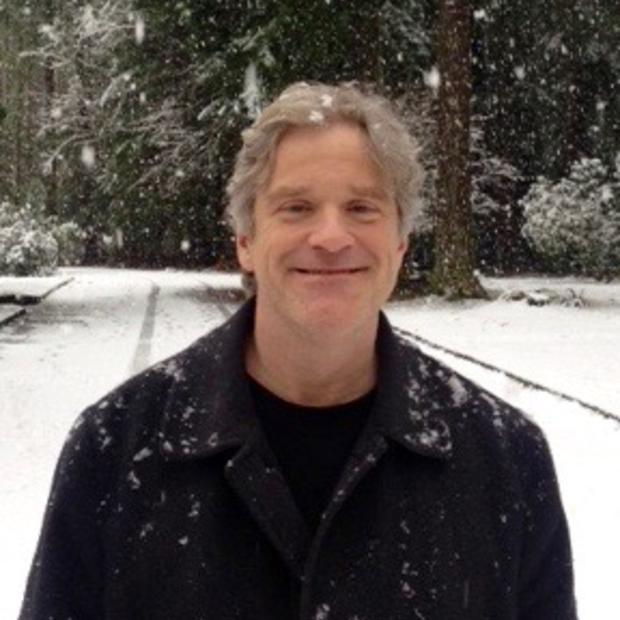It's beginning to feel like a New Deal public works blitz in reverse. As Lynda Mapes writes in this morning's Seattle Times, "First Elwha and Glines Canyon, and now Condit: The three largest dam removals ever in the country will be under way in Washington today, when contractors detonate 800 pounds of dynamite and blast the White Salmon River free." The New Deal analogy is slightly off, since Condit was built in 1911, the Elwha in 1910, and Glines Canyon in 1926. More significantly, the generating capacity of the dams is relatively low. "For one thing, even the smallest of dams on the Lower Snake puts out nearly seven times the average annual energy of all three dams being taken out combined," Mapes writes.
The Condit project has been a case study in intergovernmental cooperation. "The Yakama Nation was a key player in the settlement agreement that ultimately led to removal of the dam," Mapes reports. "The tribe historically fished on the White Salmon, but today, with salmon either extinct or listed for protection under the Endangered Species Act in the river, tribal members fish on the Klickitat, just east of the White Salmon, and with no dams." In 1941, the Bonneville Power Administration contracted with Woody Guthrie to add harmony to the storm of public works and dam construction, culminating in Washington's official folk song, "Roll on, Columbia." Which begs the question: Who will be our dam-deconstruction Woody Guthrie?
Jordan Schrader of the Tacoma News Tribune navigates the political noise (and sea of campaign promises) to ask: Will I-1183, the liquor privatization initiative, really make us less safe? Take, for example, the prospect of Jim Beam and Wild Turkey at your local mini-mart (er, is that really such a bad prospect)? "The initiative has a 10,000-square-foot requirement for stores wanting to sell liquor," Schrader writes. "There is an exception: The state Liquor Control Board can approve smaller stores in areas with no big ones. The size of those areas aren’t defined." In fact the number of liquor stores will go up from the current 328 to 1,428 according to the Governor's budget office.
Schrader's conclusions are an instructive primer: "There is no evidence that drinking skyrockets after privatization of hard liquor," he writes. "Still, states with private sales tend to report more drinking (though that’s not nearly so clear on the West Coast.) The tie to underage drinking is less clear, and opponents’ predictions of such an increase are undermined by the number of stores it’s based on, which they made up. Whatever the effects, government might counter them with its promised revenue — but that money isn’t specifically set aside for liquor-law enforcement, as supporters imply."
Tim Eyman can't pass the "duck" test: If it looks like a duck and walks like a duck, well . . . As Danny Westneat writes in his Seattle Times column today, Eyman's political sin of omission is light rail: His initiative 1125 is a light-rail killer, although voters would never be able to glean that objective from the political narrative. "When Tim Eyman went before the Bellevue City Council recently, he handed out a sheet describing what his latest idea, Initiative 1125, would do," Westneat writes. "It's what was missing from the sheet that got the most attention."
Yes, dear voter, Tim Eyman is the sneaky sort. Westneat continues: "It's not just that the words 'light rail' weren't in Eyman's handout that day. They also are not in the Voter's Guide statement for the I-1125 campaign. Nor in any of Eyman's campaign news releases. Nor in recent op-eds written by Eyman and the initiative's financier, Bellevue developer Kemper Freeman. "A sin of omission is still a sin. As George Orwell wrote in his 1946 essay Politics and the English Language, "The great enemy of clear language is insincerity. When there is a gap between one's real and one's declared aims, one turns as it were instinctively to long words and exhausted idioms, like a cuttlefish spurting out ink."
"Empathy" is not the first word citizens associate with Seattle Mayor Mike McGinn. Nevertheless, as the Seattlepi.com's Joel Connelly reports, it was the purported takeaway from Monday's "Road Safety Summit." Why empathy? "We need to know what other people are experiencing so they can adapt their behavior," the mayor said. In addition, Connelly writes that McGinn hopes for "cultural changes." Yikes, "cultural changes" and "adapt their behavior?" Good luck with that. As Orwell wrote, "In our time, political speech and writing are largely the defense of the indefensible."
Lastly, things are looking up in Boise (Orwell had nothing whatsoever to say about Idaho). As Betsy Russell of the Spokane Spokesman-Review writes regarding the Idaho legislature, which convenes in January, it will "likely be able to balance next year’s state budget without further cuts, and even make up some cuts and start refilling the state’s drained reserve funds, according to figures unveiled Tuesday." What's going on here? Idaho is living up to its motto, "Esto perpetua" meaning "it is perpetual." Washington's motto? "Alki" meaning "bye and bye." Enough said.
Link summary
Seattle Times, "Condit Dam to be demolished Wednesday"
Tacoma News Tribune, "Political Smell Test: Will Initiative 1183 make us less safe?"
Seattle Times, "Eyman's secret war on light rail"
Seattlepi.com, "In search of 'empathy:' McGinn's road safety summit"
Spokane Spokesman Review, "Idaho's budget outlook brightest in years"


